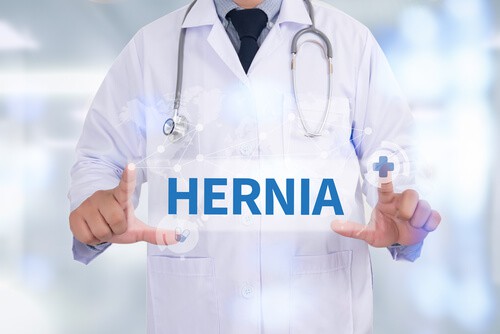Hiatal Hernia After Gastric Sleeve
 Knowing what may result from bariatric surgery is an important part of the process when you’re trying to decide if you want weight loss surgery, and part of that is understanding potential outcomes.
Knowing what may result from bariatric surgery is an important part of the process when you’re trying to decide if you want weight loss surgery, and part of that is understanding potential outcomes.
A hiatal hernia after a gastric sleeve surgery is one of these possible complications, and you should, therefore, know what it is and learn how to recognize the symptoms. In short, a hiatal hernia is when the stomach or intestines push through your diaphragm, and this can lead to acid reflux.
Repairing a hiatal hernia involves surgery, and it’s important to know the symptoms so you can approach your doctor if you think you have developed a hiatal hernia after gastric sleeve surgery.
Learn More About Hiatal Hernia After Gastric Sleeve Surgery
A hernia happens when an organ, most often in the abdomen, pushes through a weakened area in the muscle or tissue surrounding it. A hiatal hernia involves the diaphragm specifically, which is the muscle that expands and contracts to allow for breathing.
A hiatal hernia occurs when the stomach or intestines push through the diaphragm (and specifically the esophageal hiatus, which is an opening where the esophagus passes through) and into your chest. Obesity is a common risk factor that increases a person’s chances of getting a hiatal hernia, but it can also happen after gastric sleeve surgery.
The Link Between Hiatal Hernia and GERD
Although a hiatal hernia should be repaired for its own sake, there’s also another reason why you should seek medical attention if you think you have one: gastro-esophageal reflux disease (GERD). A hiatal hernia can exacerbate GERD or even cause it to develop, and that will lead to heartburn, gas, and an acidic taste in the back of your mouth. GERD can be serious because if left untreated, it can damage your esophagus, weaken your teeth, and increase potential development of esophageal cancer.
Symptoms and Treatment of Hiatal Hernia
Even if a hiatal hernia doesn’t cause or exacerbate heartburn, there are other symptoms to be on the lookout for, including:
- Chest pain
- Difficulty swallowing
- Shortness of breath
- Vomiting blood
- Regurgitating food into your mouth
In diagnosing a hiatal hernia, your doctor will use an endoscope to look into your chest or use barium to make abnormalities more apparent on an x-ray. It’s possible that a hernia will repair itself after you lose some excess weight following your surgery, or your doctor or surgeon may recommend that a hernia is repaired surgically.
Hiatal hernias can be congenital, but obesity and being elderly are also risk factors that can increase your chances of developing one. It’s also possible to develop a hiatal hernia after gastric sleeve, but if you develop one before the procedure, your surgeon may recommend repairing the hernia when the gastric sleeve surgery is performed. Because of the link between this type of a hernia and GERD, it’s crucial that you be able to recognize the symptoms so that you can seek medical treatment.
Find out if you qualify for the Tijuana Mexico Gastric Sleeve by clicking through to our online application form or contact us today to find out more.
[button link=”https://jetmedicaltourism.com/apply/” type=”big” color=”blue” newwindow=”yes”] See If You Pre-Qualify[/button]
[button link=”https://jetmedicaltourism.com/contact/” type=”big” color=”blue” newwindow=”yes”] Contact Us Today[/button]

